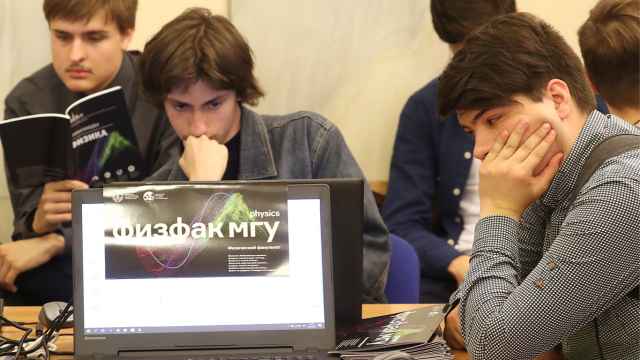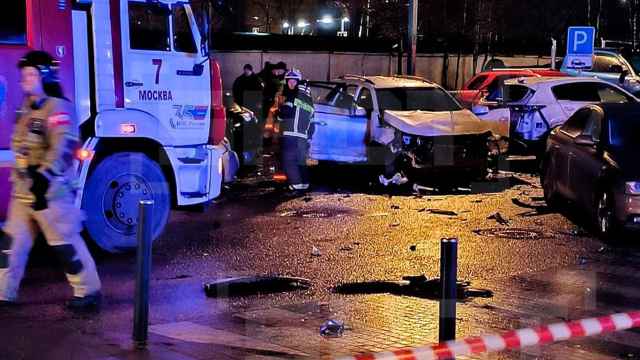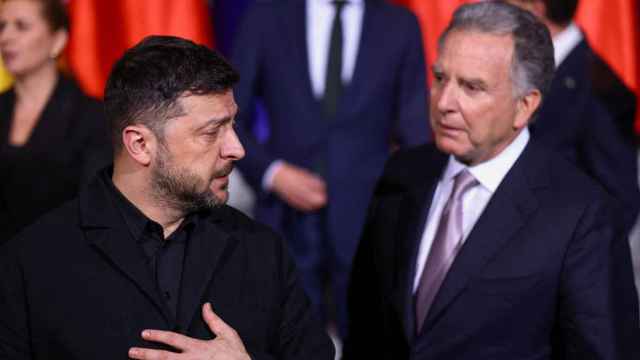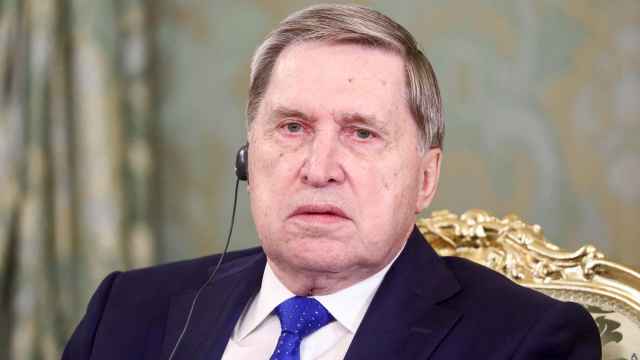The number of Russian children living in orphanages remains stubbornly high, UNICEF said in a new report, while the Kremlin's children's ombudsman announced new plans for closing the state-run facilities.
The reports highlight the government's mixed record on improving living conditions for the nation's more than 700,000 orphans since reforms designed to move children out of state care were announced in 2006.
About 140,000 orphans live in orphanages, where they face a higher risk of becoming socially maladjusted or developing criminal behavior, UNICEF said in a wide-ranging report on the welfare of the nation's children released last week.
"Anyone who thinks Russia is on the threshold of being a country without orphanages is building castles in the sky," said Olga Tikhomirova of Step Up, a charity that provides education and support for children in orphanages. "What is needed is not bureaucratic number-fiddling but a real attempt to dismantle a bloated system that has almost no flexibility to respond to individual need."
The report comes almost six years after then-President Vladimir Putin instructed the government to reduce the number of children in state custody in his 2006 state-of-the-nation address. He also proposed doubling existing stipends for adoptive families.
The percentage of orphans living in orphanages dropped from 23 percent in 2006 to 16.5 percent in 2009, UNICEF said in its report, which included a range of recommendations aimed at placing more children in a home environment.
The report also praised the creation of the state's Children's Fund — which assists children at risk — in 2008 and called for the development of a national strategy on children's issues.
Children's ombudsman Pavel Astakhov made the eventual elimination of state-run orphanages the central goal of his annual report on children's welfare, which he presented to President Dmitry Medvedev in a closed-door session on Friday.
Boris Altshuler, executive director of The Right of the Child, supports the idea laid out in the report, entitled "Russia without Orphans."
But he says lobbyists in the State Duma working on behalf of corrupt officials in the orphanage system have blocked earlier efforts to move children out of state care.
"Where's the light at the end of the tunnel? We haven't even entered the tunnel," he said.
Astakhov's report, which will be released to the public on Monday, also addresses the recent spate of teen suicides and international adoptions, which have been the subject of intense controversy in recent years following a series of abuse cases involving foreign parents.
The latest incident was reported on Friday. Anton Batrakov, 16, alleged he was hit in the face, poorly fed and locked up in a psychiatric hospital by his American adoptive parents.
Citing an "incessant string of crimes," the Foreign Ministry earlier this month asked the government to suspend adoptions by U.S. parents until a July 2011 bilateral agreement enters into force that establishes clearer and tighter guidelines for adoptions and monitoring. The agreement is finalized on the U.S. side, but ratification by the Duma is still pending.
At least 17 Russian children have died in the United States as a result of abuse by their parents since 1995, Pavel Astakhov, the children's ombudsman, said in January 2011.
Russia is second only to China in the number of children adopted by Americans, with some 60,000 adoptions over the past 20 years.
In 2010, 1,079 Russian children were adopted by American families, down from 3,966 in 2005.
A Message from The Moscow Times:
Dear readers,
We are facing unprecedented challenges. Russia's Prosecutor General's Office has designated The Moscow Times as an "undesirable" organization, criminalizing our work and putting our staff at risk of prosecution. This follows our earlier unjust labeling as a "foreign agent."
These actions are direct attempts to silence independent journalism in Russia. The authorities claim our work "discredits the decisions of the Russian leadership." We see things differently: we strive to provide accurate, unbiased reporting on Russia.
We, the journalists of The Moscow Times, refuse to be silenced. But to continue our work, we need your help.
Your support, no matter how small, makes a world of difference. If you can, please support us monthly starting from just $2. It's quick to set up, and every contribution makes a significant impact.
By supporting The Moscow Times, you're defending open, independent journalism in the face of repression. Thank you for standing with us.
Remind me later.





